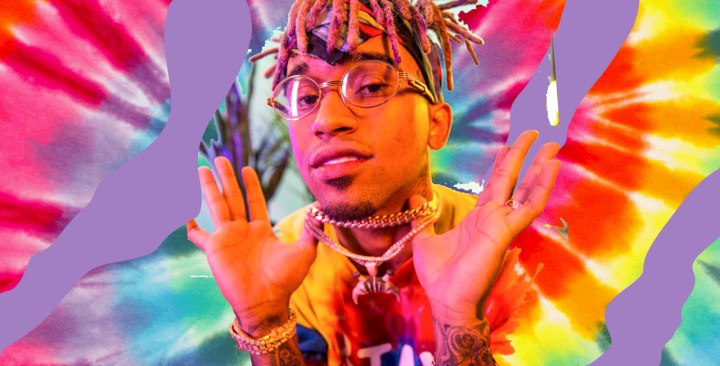Bad Bunny and Bryant Myers Songs Banned in the Dominican Republic

Photo by Itzel Alejandra Martinez for Remezcla. Art by Alan Lopez for Remezcla
The ever-controversial genres of reggaeton, hip-hop, and dembow are facing backlash once again. On Thursday, The Associated Press reported that the Dominican government announced an indefinite ban on eight urbano songs considered to be too explicit for radio and TV. The Comisión Nacional de Espectáculos Públicos y Radiofonía, the agency that is responsible for regulating radio and TV communications in the Dominican Republic, said the songs were banned as a result of their “vulgar content.”
The censored songs include many of the Latin trap and dembow songs dominating streaming platforms in Latin America, such as “Estamos Clear” by Miky Woodz and Bad Bunny, “Quiero Hablarte” by Bryant Myers, as well as “Lo Que Diga Yo,” a collaboration between El Alfa, Jon Z, Farruko, Bad Bunny, and Miky Woodz. According to the Associated Press, the former was banned for its sexually explicit lyrics, while “Lo Que Diga Yo” was censored for its references to narcotrafficking.
The president of the agency, JM Hidalgo, has caused an uproar in the urbano community as a result of his campaign to censor trap, hip-hop, and reggaeton on the island. In a statement, Hidalgo said, “The high volume of sexual and obscene content, and encouragement of death, suicide, and the use of banned substances are being used in a thoughtless way in songs today.” Unlike the U.S., artists typically do not create “clean” versions of tracks to play on Dominican radio and TV. According to The Associated Press, that this ban doesn’t prevent artists from playing the songs during their concerts in the Dominican Republic.
Even though this latest wave of bans is stirring controversy, the campaign fits into a long history of musical censorship in Latin America, particularly when it comes to urbano genres. In its early years, reggaeton was targeted by Puerto Rican government officials for its explicit lyrics. And while such censorship campaigns are often motivated by classism and racism through thinly veiled language, there are valid criticisms, especially for songs that promote violence against women. Many fans continue to speak out against misogyny in urbano songs, especially at a time when women are being vocal about all kinds of gender-based violence, from harassment in the workplace to physical abuse.
Read the full list of censored songs at Diario Libre.